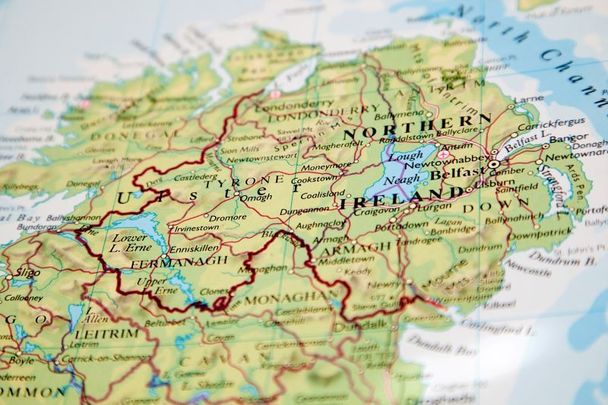We are on the cusp of the marching season in Northern Ireland, the usual unionist lollapalooza when they try to intimidate and denigrate Catholicism and members of the nationalist community.
The temperature will start rising by July 1 and will culminate on July 12, the anniversary of the Battle of the Boyne.
But apart from the bitterness and the pageantry, it appears that Ulster unionism has nothing else to offer.
The facts are that weeks after the visit of the President of the United States, the British Prime Minister, and the head of the European Union, nothing is stirring in terms of a new solution and return to the Stormont Assembly by the Democratic Unionist Party (DUP).
When that party resists the best efforts of such powerful entities to bring about a resumption of democracy in the North, it must bode ill for its leadership.
There is no question now that Jeffrey Donaldson, DUP leader, is unable to bring his party with him. He is unable to come up with any solution that would allow the Northern Ireland Assembly to resume.
Donaldson has used every excuse, except the dog ate my homework, to explain why he cannot go into government. He tried to pin it on Brexit for some time, but the new British Prime Minister Rishi Sunak made it clear that a settlement on Brexit would be part of the solution.
Donaldson is now reduced to empty sloganeering because he has nothing else to offer. He is clearly incapable of uniting his party behind him, and with the Orange Order marching season on the horizon, he can run from political reality for a few more months.
Ironically, nationalists pine for the Reverend Ian Paisley, or a David Trimble, two men who, when it came to the real crunch, were able to forge a democratic deal for the North. Donaldson has neither the gumption or the talent to match either of those two men.
Given his continued obstructionism, and his reluctance to make a serious effort at cross-community government, the time has come to look at different options for the North.
Remember, Donaldson has always said no – no to the Good Friday Agreement, no to the Brexit arrangements – and has never had a price to pay for his intransigence.
Without a functioning Assembly at Stormont, there seems little point in pursuing current policy because of an inability to secure the institutions.
The British and Irish governments must now move towards a version of joint authority, giving the Irish Republic equal status. That is the only option that makes any sense at this point.
Such a joint arrangement would reflect the truth of the political impasse, yet make it clear that unionism cannot bring efforts towards peace and long-term political progress to a standstill.
The devil would be in the details, and it would no doubt be a difficult operation to achieve, but what other option is there at this point if Donaldson won’t listen to the will of the people and form a government with Sinn Féin.
The initial reluctance, of course, will be evident, especially from unionists, but the fact is that governance of Northern Ireland must be taken out of their hands if they are not prepared to create a working atmosphere between them and their opponents.
The tired old unionist veto is no longer their biggest weapon as demographics have shifted dramatically towards a nationalist majority. Given that reality, unionism must either come in from the cold right now, or find themselves being passed over by the two sovereign governments which must seek to create a new version of joint authority, one that will fairly reflect both communities and will not countenance stalling and double-dealing as part of its policy.
*This editorial first appeared in the June 21 edition of the weekly Irish Voice newspaper, sister publication to IrishCentral.




Comments